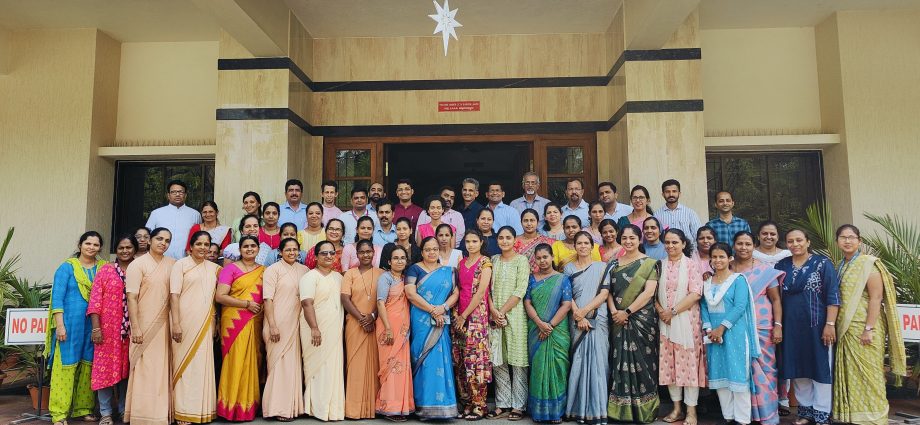By Matters India Reporter
Udupi, Nov 12, 2024: K Jayashankara came to a workshop organized by the diocese of Udupi with misgivings about Artificial Intelligence.
“Now I am confident to explore the vast world of AI. I realize now that AI doesn’t take away jobs if we learn to use it. It actually enhances our creativity when applied ethically,” the principal of St Mary’s PU College, Shirva, said after attending the November 11 workshop at the Anugraha Pastoral Centre, Udupi, in the southern Indian state of Karnataka.
Jayashankara was among principals, headmasters, technical staff from English and Kannada medium schools, and members of the pastoral center team who participated in the program organized by the Catholic Educational Society of Udupi Diocese (CESU) to prepare educators for the rapidly evolving educational landscape.
The program aimed to equip participants with practical AI skills and insights to enhance classroom experiences while maintaining ethical standards in education.
“Before attending this workshop, I thought AI was beyond my understanding,” admitted Jayashankara.
The event, led by Father Vincent Crasta, CESU secretary and director of the venue, in association with Canara Communication Centre, Mangalore, powered by Ailumina -AI Learning platform.
It brought together key stakeholders in education to explore how AI can revolutionize teaching and learning practices.
Father Ferdinand Gonsalves, vicar general of the diocese and CESU vice president, the chief guest, he underscored the importance of embracing AI in education.
“Artificial Intelligence has the potential to make education more inclusive and impactful. Through adaptive learning, it enables personalized instruction, ensuring that every student’s unique needs are met effectively,” he added.
The sessions were facilitated by AI experts — Father Anil Ivan Fernandes, director of Canara Communication Centre, a Google-Certified AI Coach, and media professional, and Leo Victor Zalki, director of Oxidane Enviro LLP, an Oracle and Google-Certified AI professional.
They introduced participants to a range of AI tools and applications that foster personalized, interactive, and data-driven learning experiences. Key topics included adaptive learning, ethical AI usage in education, and integrating AI for enhanced classroom engagement.
“Education today demands innovation. AI empowers teachers to tailor learning experiences, making education more dynamic and relevant to individual student needs,” Father Fernandes explained.
Zalki emphasised the supportive role of AI, stating, “Artificial Intelligence does not replace teachers. Instead, it complements their creativity and expertise, enabling them to achieve greater impact in their teaching.”
After the workshop, Joyce Vandana, a headmistress of a Kannada medium school in Udupi, found AI “incredibly useful in the field of education. It’s a tool that every teacher across all schools should understand and incorporate into their teaching. It opens new avenues for both educators and students.”
The workshop ended with the participants gaining hands-on experience in using AI tools and practical strategies to implement these technologies in their schools.
Father Crasta said the workshop reflected CESU’s commitment to staying at the forefront of educational innovation while upholding its mission of delivering holistic and value-based education.
By integrating AI into its academic framework, CESU plans to ensure its institutions are equipped to navigate the future of education while fostering excellence and inclusivity in learning, he added.










